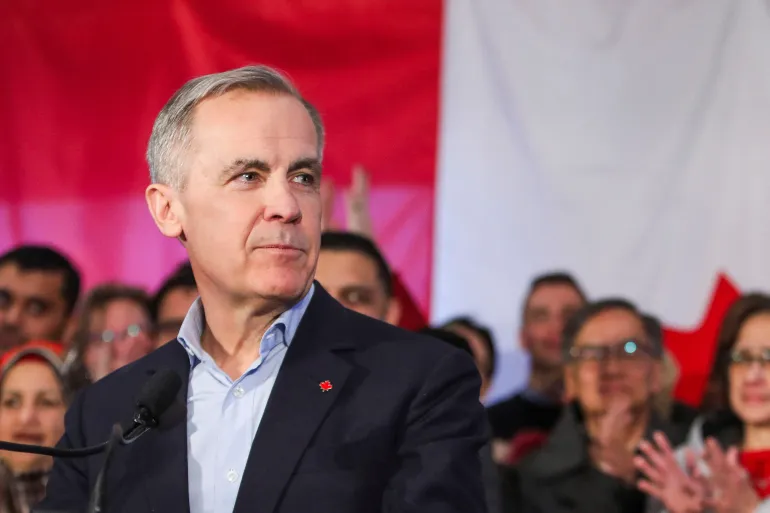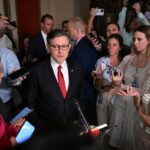Former central banker Mark Carney has officially launched his campaign to succeed Justin Trudeau as leader of Canada’s Liberal Party and the country’s prime minister.
Speaking from a small community center in his childhood neighborhood in Edmonton, Alberta, Carney, 59, highlighted his crisis management expertise and readiness to address Donald Trump’s protectionist policies. He also promised bold economic reforms, criticizing the Trudeau government for overspending, under-investing, and placing a heavy tax burden on the middle class.
“I am going to be completely focused on getting our economy back on track,” Carney said. He emphasized his leadership during pivotal moments as Bank of Canada governor during the global financial crisis and as Bank of England governor through the UK’s Brexit process.
Trudeau announced his resignation earlier this month amid growing dissatisfaction within his party over poor polling numbers ahead of this year’s election. Trudeau, who has served since November 2015, will remain in office until his successor is chosen on March 9.
Mark Carney’s chief competitor for leadership appears to be former finance minister Chrystia Freeland, whose resignation last month over policy disagreements prompted Trudeau’s decision to step down.
The new prime minister’s tenure may be short-lived, as the minority government faces the risk of being toppled in Parliament by the end of March, potentially triggering an election that current polls suggest the opposition Conservatives are poised to win.
“As a long-time Liberal insider, advisor at least as early as 2020 … Carney is the furthest thing possible from an outsider,” the Conservatives said in a statement on Thursday.
Carney worked for Goldman Sachs before joining the Canadian finance ministry in 2004. He was named Bank of Canada governor in 2007 and quickly had to deal with the after-effects of the global crisis in 2008.
In 2013 he took over as governor of the Bank of England, becoming the first person to ever head two major central banks.
After leaving the bank in 2020, he was appointed United Nations special envoy for climate action and finance. He was also a senior executive at Brookfield Asset Management and on the board of companies including bond investor PIMCO and fintech giant Stripe.
Carney said he had resigned as the U.N. special envoy and left all commercial posts before launching his Liberal Party leadership bid.
Carney’s Journey: From Finance To Political Leadership
Carney began his career at Goldman Sachs before transitioning to public service with Canada’s finance ministry in 2004. Appointed as Bank of Canada governor in 2007, he quickly faced the challenges of the 2008 global financial crisis.
In 2013, Carney made history as the first individual to lead two major central banks, becoming the governor of the Bank of England. During his tenure, he played a key role in navigating the UK’s financial landscape through Brexit.
After stepping down in 2020, Carney was appointed the United Nations Special Envoy for Climate Action and Finance. He also held senior roles at Brookfield Asset Management and served on the boards of companies such as PIMCO and Stripe.
Ahead of his bid for leadership of Canada’s Liberal Party, Carney announced his resignation as the UN special envoy and confirmed his departure from all commercial positions.






